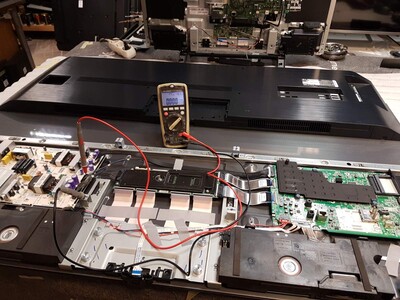"LG announces an update OLED TV technology, which the company says will further enhance its class-leading OLED.EX TVs.
OLED technology is at the heart of some of the best TVs on the market, but it can still be darker than some analogue TVs, but LG claims it can increase brightness by 30% by using a new material to make OLED itself.
This is done using deuterium, a substance that is an isotope of hydrogen in its atomic structure, but has an extra neutron particle (which is why water enriched with deuterium, rather than the more common hydrogen mind, is called "heavy water"). In the development of OLED TVs, this compound replaces the more common hydrogen and allows for increased brightness.
"LG is also using new algorithms to stabilise the OLED pixels used in TVs, so LG TVs can predict and accurately identify lighting patterns on millions of pixels. With this new technology, dark and light areas of scenes will be brighter.
This additional technology will also improve LG's design capabilities by reducing the band around the edge of the screen by up to 4 mm. The current size (a barely visible 6 mm) is not too big, but this change brings LG OLED TVs closer to the goal of a "zero bezel" design that looks most attractive in the living room.
The new OLED.EX TVs are likely to be shown at CES 2022, although it is not clear in what form. The technology will not be launched until April 2022 at the earliest, so it may be used in future (but not yet announced) C2 OLED TVs, which we expect later this year.
LG has not confirmed whether this improved manufacturing process will in any way increase the price of its OLED TVs.
What is deuterium?
Deuterium is the most common isotope used in fusion reactors and is derived from seawater. As mentioned above, it is used to produce "heavy water" and has been used for many years in research and consumer electronics.
As production costs have fallen, LG says it has found a way to extract deuterium and use it to create OLED TVs as a "deuterium compound" - a move that has clearly crossed the line of cost-effectiveness as the South Korean brand seeks to improve the quality of its OLED displays.
For years, OLED TVs have been threatened by Samsung's QLED displays, and the latest 8K QLED TV has knocked OLEDs off the top of our list of the best TVs.

